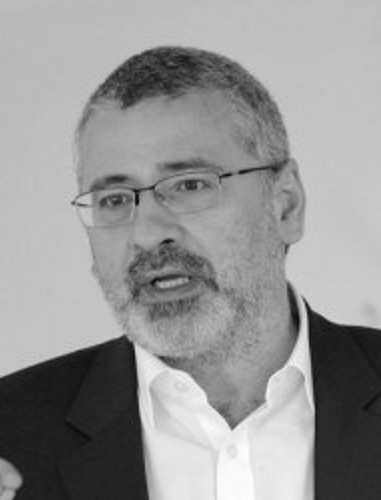Who
are theBIG 2018 Keynote speakers


Jon Kleinberg
Jon Kleinberg is the Tisch University Professor in the Departments of Computer Science and Information Science at Cornell University. His research focuses on issues at the interface of algorithms, networks, and information, with an emphasis on the social and information networks that underpin the Web and other on-line media.
He is a member of the US National Academy of Sciences and the US National Academy of Engineering, and the recipient of research fellowships from the MacArthur, Packard, Simons, and Sloan Foundations, as well as awards including the Harvey Prize, the Nevanlinna Prize, the SIGKDD Innovation Award, and the ACM Prize in Computing.
Title :
Fairness in Data Analysis and Algorithms
Abstract :
Recent discussion in the public sphere about classification by algorithms has involved tension between competing notions of what it means for such a classification to be fair to different groups. We consider several of the key fairness conditions that lie at the heart of these debates, and discuss recent research establishing inherent trade-offs between these conditions. We also consider a variety of methods for promoting fairness and related notions, for classification and selection problems that involve sets rather than just individuals.
This talk is based on joint work with Jens Ludwig, Sendhil Mullainathan, Manish Raghavan, Maithra Raghu, and Ashesh Rambachan.
Alessandro Vespignani
Alessandro Vespignani is the Sternberg Family Distinguished University professor at Northeastern University. He is the founding director of the Network Science Institute and lead the Laboratory for the Modeling of Biological and Socio-technical Systems.
His recent work focuses on data-driven computational modeling and forecast of emerging infectious diseases; resilience of complex networks; and collective behavior of techno-social systems.
He is elected fellow of the American Physical Society, member of the Academy of Europe, and fellow of the Institute for Quantitative Social Sciences at Harvard University. He served in the board/leadership of a variety of professional association, journals and the Institute for Scientific Interchange Foundation.
Title :
Big data epidemiology: more than forecast
Abstract :
The big data revolution is finally enabling the development of data driven models of infectious diseases offering predictive tools in the area of infectious disease threats and emergencies. Analogous to meteorology, large-scale data-driven models of infectious diseases provide real- or near-real-time forecasts of the size of epidemics, their risk of spreading, and the dangers associated with uncontained disease outbreaks. These models are not only valuable because they predict where and how an epidemic might spread in the next few weeks, but also because they provide rationales and quantitative analysis to support public health decisions and intervention plans. At the same time, the non-incremental advance of the field presents a broad range challenges: algorithmic (multiscale constitutive equations), scalability, parallelization, real time integration of novel digital data stream (social networks, participatory platform for disease monitoring, human mobility etc.).
I will review and discuss recent results and challenges in the area, ranging from applied analysis for public health practice to foundational computational and theoretical challenges.

